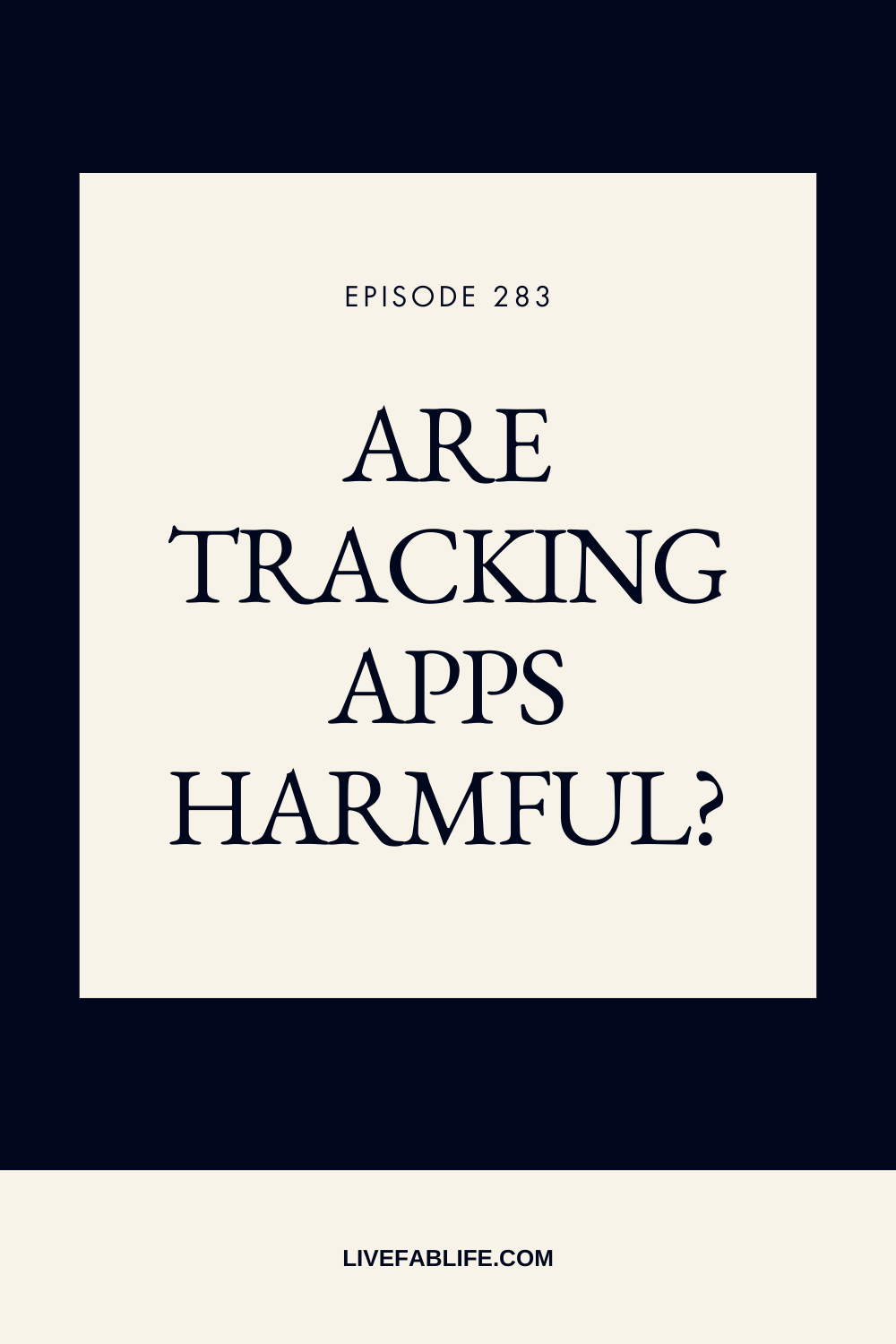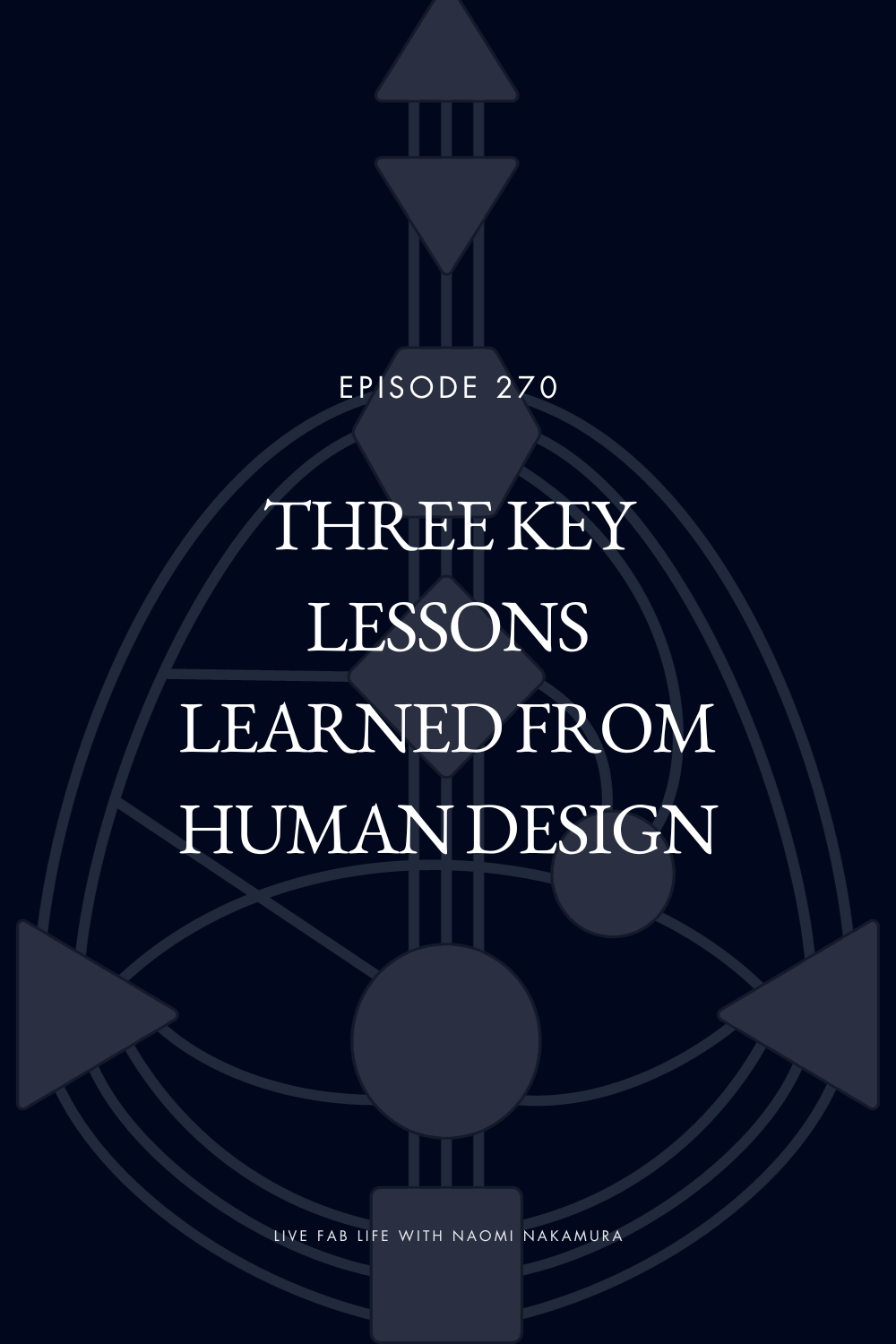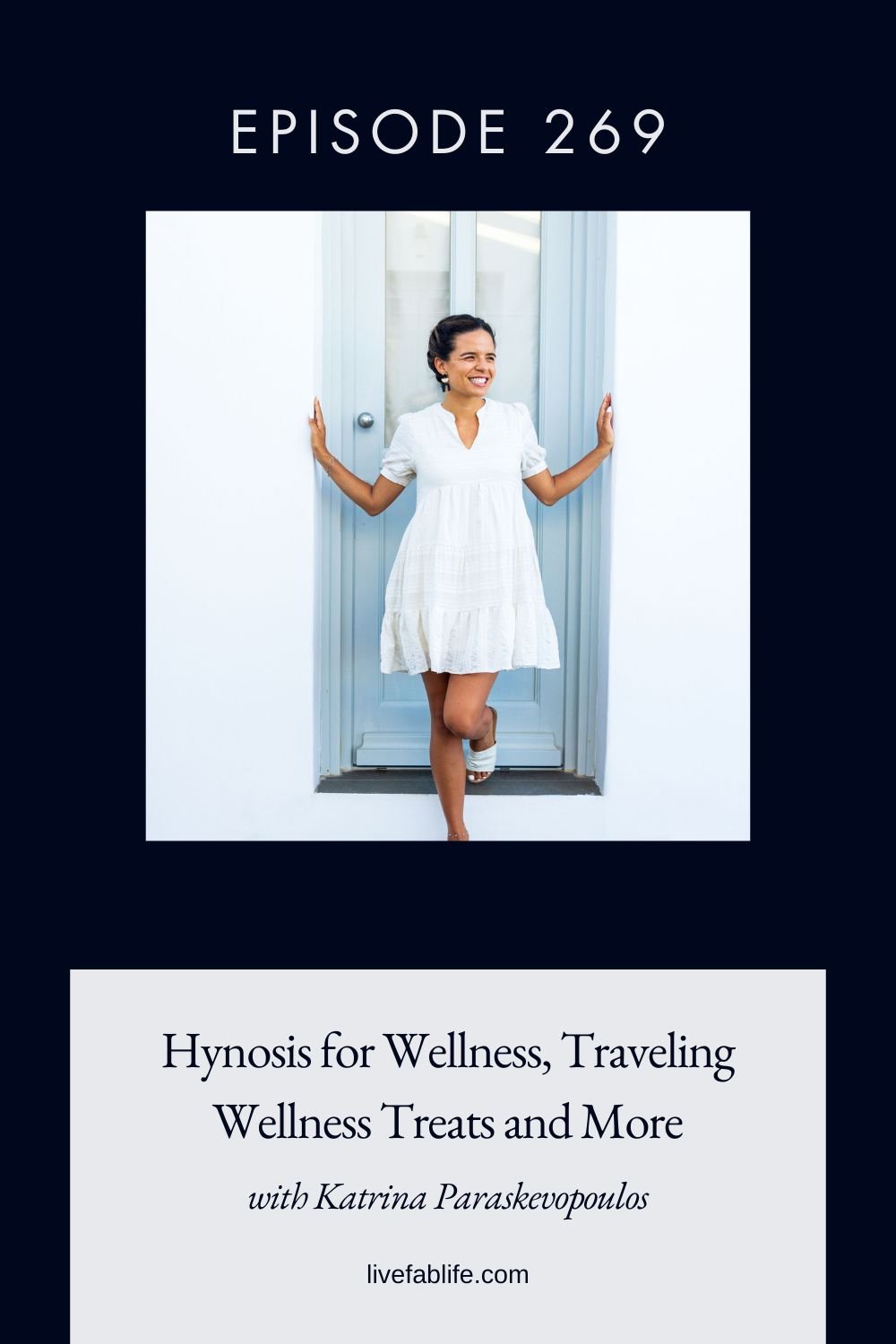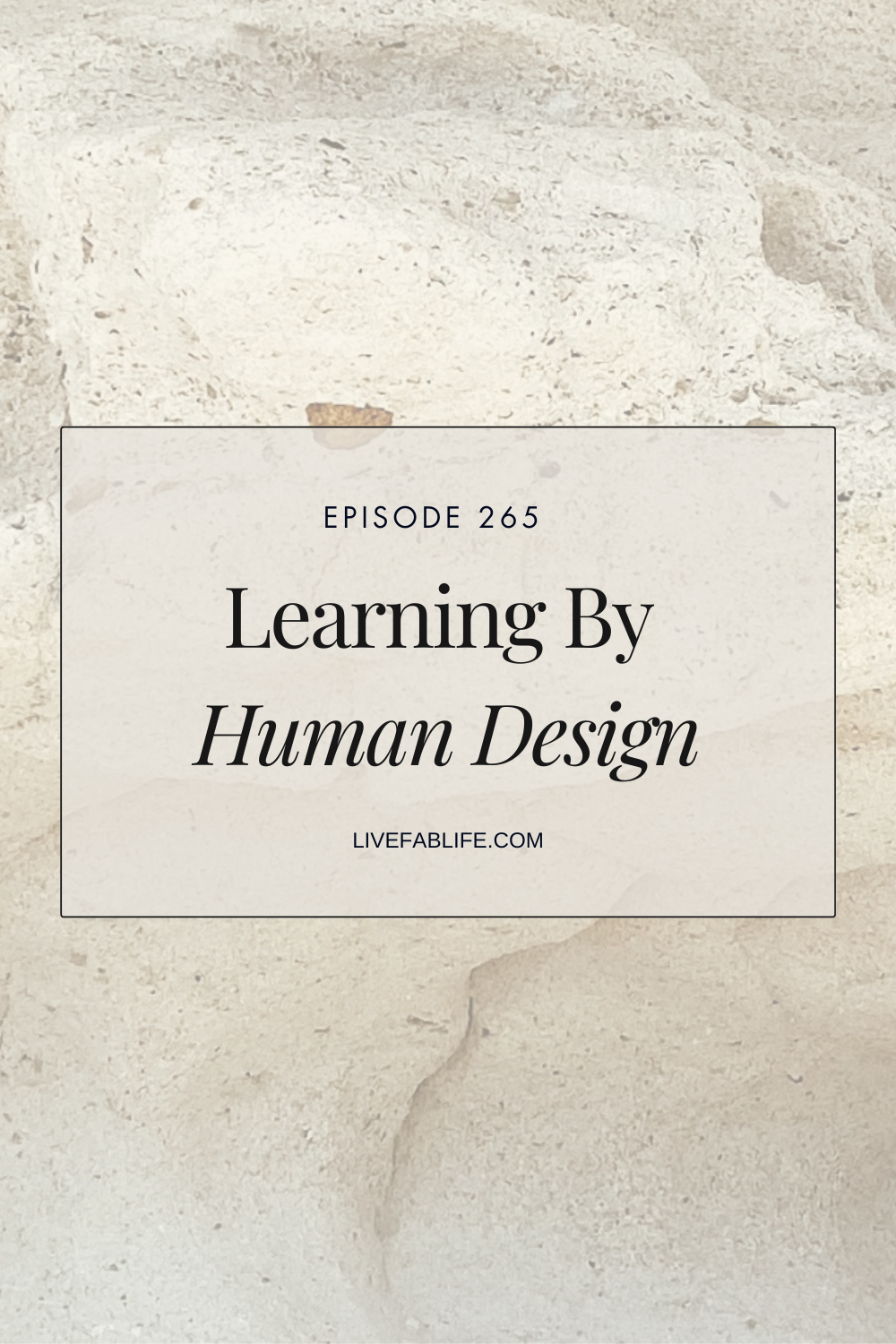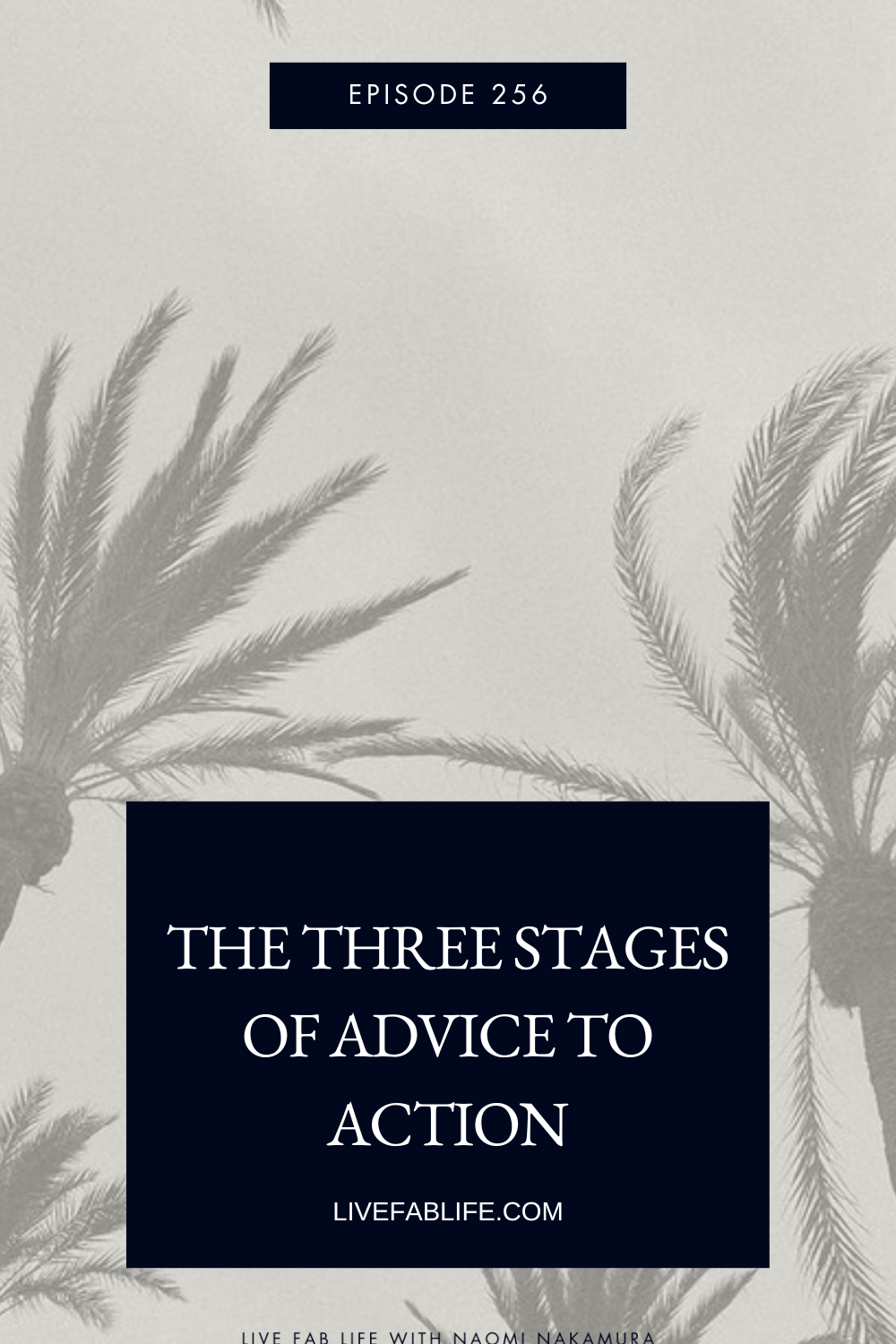Episode 161: Six Everyday Endocrine Disruptors and Where to Find Them
We expose ourselves to endocrine disruptors each and every day -- most of the time we aren’t even aware of it.
In this episode, I share with you six areas of concern for exposure to these toxins from within our very own homes. If we aren't conscious or careful, we run the risk of low-dosed and prolonged exposure that can negatively impact our health in the long run.
Episode Highlights:
Everyday toxins we might not be aware of
Endocrine Disruptors and where we can find them
What we can do to lessen our exposure
Listen to the Episode:
Mentioned in this Episode:
Connect with Naomi:
Share the Episode:
“We spend so much time, money, and energy on the pursuit of being healthy - the food that we’re putting on our plates, what we’re eating, the kind of workouts that we’re doing, how we’re staying fit, how we’re moving our bodies. But we ignore a really critical piece that impacts our health, every single day. And that’s the toxins that were exposed to daily, often within our own homes.”
Read the Transcript:
Hello there and welcome back to The Live FAB Life Podcast. I am your host, Naomi Nakamura.
Today we’re going to be talking about everyday endocrine disruptors.
As a society, we spend so much time, so much money, and so much of our energy on the pursuit of being healthy. We really look to our diets and the food that we're putting on our plates, what we're eating, the kind of workouts that we're doing, how we're staying fit, and how we're moving our bodies.
But we ignore a really critical piece that impacts our health, every single day. And that is the toxins that were exposed to daily, often within our own homes.
So, what I want to talk about is how I’ve addressed every day endocrine disruptors in my own home.
First, what are endocrine disruptors? They're simply some chemicals, because I want to make the point that not all chemicals are bad, but some chemicals, some that are natural and that are some manmade, that can interfere with how your hormones function in your body, your endocrine system, your hormonal system.
This is problematic because your hormones affect every single aspect of your health. They affect your brain function, regulate your appetite, determine your digestion, impact your metabolism, fertility, etc.
When one function is disrupted, it then has a cascading effect on the rest of your body - the rest of the communication network, which is your hormones – your endocrine system.
This is why this topic so important, and why it's such a big piece of my message.
You know, I talk about nutrition, gut health, how we manage stress. And how we address the toxins that impact how our body functions is a big piece of my message.
So today, what I want to talk about, well, first of all, there's so many things we can talk about with this subject. But I'm just going to talk about six things that I've addressed within my own home.
If you're a longtime listener of the show, I'm sure I've done an episode on this topic or a related one at some point over the past 3 ½ years, probably in the very early days. So, if you've heard this before, you know, it's always helpful to hear these things again.
So, here are the six most common things that I've addressed in reducing my exposure to endocrine disruptors.
The first one is the water in my home. I used to be for many, many years, someone who used to buy water bottles by the case. I would store them on the entire bottom shelf of my refrigerator. That was always the shelf for bottled water.
Whenever friends came over, they knew that I had plenty of bottled water for everybody. I never drink water from the tap.
Well, in hindsight, now I know that you know, plastic is not only not good for the environment, but it's also disruptive to the endocrine system.
Not to mention the fact that in the tap water that we drink, there's also toxins in their toxins like arsenic is the first one that comes to my mind. I'm sure this is not new information for you.
So, what do we do? We look for water filters, right? That's typically the most common answer.
Many of you might have a Brita water filter. I did for a long time. But guess what? Brita is also made of plastic, which has Bisphenol A, also known as BPA. It’s a term that you might be familiar with and it’s an endocrine disruptor.
So, if Brita isn’t a good option, what do you do?
Well, the first thing you do, and I address this, because a lot of the questions I get is, well, what filters should I get?
Well, first, you go to your city or your county's website and do a search for the annual water report. You want to download it and take a look to see what is in your water. Most municipal areas have this annual report to show exactly what minerals are in your water. You can take a look to see what's prevalent, what's not, and what might be more toxic and harmful for human consumption.
Once you have that information, go and find the filtration system that addresses the specific things in your local water report. This is why there isn't one universal answer for what water filters to use.
Now, this is the cavea, If you're a home owner, you have the luxury of having the option to have a water filtration system installed in your home. I have several friends who have done this. In fact, my parents did this when I was growing up.
But what do you do if you are not a homeowner? I'm not a homeowner, I rent, so I don't have the luxury of doing that.
So, I did the best that I could and invested in a Berkey water filter. It's pretty good for many different areas and it's made of stainless steel. This is what I've been using and it's working out really well.
So, that’s what I use for my drinking water, my dog's drinking water, for cooking.
I also got the Berkey shower filter because guess what? When we take showers, we also consume the water there. And so, I have a Berkey shower filter for my shower as well. So this is how I’ve addressed the issue of water.
Number two is food containers. If you’re like in your 30’s and 40’s, maybe even in your 20’s you probably grew up with Tupperware in the kitchen you grew up in.
Or maybe some of you might have used the reusable Ziploc, Glad, or Target plastic containers for food storage.
Again, like plastic water bottles, those things also have BPA and who knows what else in them.
When heated up or exposed to heat, it becomes problematic because off gassing harmful.
For example, you know when you have a food storage container, and it gets stained from pasta sauce? That's a sign that some off gassing happened when the plastic came into contact with the pasta sauce. And that's not a good thing.
So, a few years ago, I made the switch and got rid of all of my plastic and Tupperware containers. I switched to glass and stainless steel. It requires a little bit more caution when handling, when you're washing and what not, but it's just a smarter choice, not just for your health, but also when it comes to the environment.
You also want to pay attention to food packaging. What’s in the packaging of the food that you're buying and consuming?
It's not just plastic, that's problematic, but also canned goods. The lining of the cans also has Bisphenol-A, aka BPA. Aluminum can also be problematic.
So, you want to look for options of foods that perhaps come in glass containers, and other brands that have safer packaging options for their products.
When it comes to canned foods Eden's is a good brand. So when I buy beans, and I don't eat a lot of beans, but when I do buy beans, I look for that specific brand because they know they're making smarter and safer choices when it comes to their food packaging. The third area that I've taken action on is on animal products. It's no surprise that conventionally grown foods are likely to be exposed to chemicals that help them grow faster and bigger. Those chemicals often are endocrine disrupting chemicals.
I have family members and friends who went to college in eastern Washington state, and they would comment that on the drive out there, they would pass commercial farms and ranches that had all of this cattle that were huge, like abnormally huge.
Well, they're abnormally huge because they're likely pumped up with growth hormones. So, when you consume animal products that have been raised that with growth hormones, well, you're going to be exposed to them too. I know that this is one reason why some people opt for a plant-based diet. Personally, I'm not a vegetarian. I do eat animal products, because I feel that the nutrients from animal protein are so nutrient0rich and good for you.
Side note: I did try to be a vegetarian back 2007 or 2008, and it just was not for me. It wasn’t good for the constitution of my body.
But the point I'm trying to make is that avoiding animal products for that reason, is not the only option available for you. This is why we put a lot of importance on where you source your food from. Choosing organic, grass-fed, wild, pasture-raised animal products are the best options for you.
So, what do I do personally? Well, seafood is my favorite food. And seafood can be problematic because of high levels of mercury but also in how it’s sourced, where it’s sourced from, and what were the practices used in catching seafood.
I use a company called Vital choice. They're an online brand and are also a certified B Corp. Whenever I see a company with that logo, I know that they have met a certification that means that they prioritize their people (they take care of their employees), they prioritize the planet, (they do business in an environmentally friendly way and take care for the planet), and they're also profit-based.
These are ways a lot of the more socially conscious brands are bringing awareness and social consciousness into their business.
So, a B Corp means something to me, and that means that where they source their food from and how they source their food from is in the best interest of people and the planet.
I have to say, Vital Choice’s seafood is some of the highest quality seafood that I've ever had. They are premium-priced, but I have subscribed to their email list, have their catalogue, and they always have coupons and savings. I really try to take advantage of the different promotions to save dollars.
I don't eat seafood every single day, but I do try to have it once or twice a week. So as much as possible, Vital Choice is where I do source my seafood from.
When it comes to other animal protein. I mostly eat beef. Sometimes I eat pork, but I don't eat a lot of pork. This is just personal preference. I order currently from Five Mary Farms, another online business, and family-owned business.
They are extremely transparent on their Instagram account, which I'll link to in the show notes about how they raise and care for their animals. So that's where I get my ground beef, and honestly, most of the animal protein that I eat.
When it comes to poultry, mostly chicken, I don't eat a lot of it. This is because I was raised in a household where my father was allergic to most seafood, and my mother didn't eat red meat. So, growing up, we ate a lot of chicken and turkey.
As an adult. It's not my personal preference. I eat it once in a while, but it's not my first choice. But when I do eat it, I don't have a specific online business or go-to for this source.
I ordered most of my groceries from a local company called Good Eggs. They're local to the San Francisco Bay Area, and they're an online grocery delivery company.
They source their food from local vendors and local farms. I know that when I order from them, I'm supporting a local business. Then with the local farms I can do a little bit of research to see which ones have safer and better practices. Many of them offer organic options, and that's always what I choose for chicken or turkey.
So, this is how I’ve addressed animal protein in my kitchen.
Of course, when it comes to fruits and vegetables, I either order from Good Eggs or go to my local Farmers Market. I take the opportunity to ask a lot of questions to the farmers that are there.
Another area to be concerned about or just to be aware of is the endocrine disruptors that were exposed to through the cookware in our kitchens.
Many of us have nonstick Teflon, right? I remember growing up my mother, my grandmother, they all had non-stick, and it was the best thing because it's easy to clean.
But nonstick Teflon is made with a class of chemicals called PFA s which is also known as perfluorinated chemicals or PFC’s. The most famous chemicals in this class or P FO a or P FOS. These two particular groups of chemicals, they were phased out in 2015, but they've been replaced by similar chemicals from the same family that have the similar effects that the other ones did.
So, what happens with this nonstick Teflon is that when the pans are heated, even to just a moderate heat? Again, off-gassing occurs just like with plastics. Chemicals are released into the air, then into your food that you're eating, and they can cause uncomfortable, flu-like symptoms in humans.
They’ve also been linked to more serious health issues like asthma in children, reproductive toxicity and infertility, and again, hormone disruption specifically to the thyroid.
So, it's really important to know and to be aware of the cookware that you're using.
This is something a lot of people aren't aware of. We cook in our homes almost every single day and nonstick Teflon is an everyday endocrine disruptor.
What are safer options?
I've switched to using cast iron cookware and stainless-steel cookware. I made this switch about six years ago, around 2015.
Cast iron, it is a bit heavier to carry and use around the kitchen. It does require a little bit more TLC when it comes to cleaning and caring for it, but it is such an affordable switch to make.
I personally just love the way my food comes out cooking with cast iron. I’ve just really come to embrace it.
I do have stainless steel cookware, for pots mostly.
In the kitchen also be aware of plastic (saran) wraps, again, especially when heated, like in the microwave (which is another conversation but not for today).
I still have saran wrap in my kitchen, but I use it very, very sparingly, if anything to cover something to go in the refrigerator.
There's something that I use called, I don't even know what the name of it is, but it's like reusable, beeswax, basically. I don't know the brand name, but you can Google it.
So that's kinds of the switches that I've made in my kitchen.
Now, the fifth one is about cleaning products.
I don't think we need to go deep here. I think many of us are aware that there are more harmful and more safer options when it comes to cleaning products.
The thing to know is that some are loaded with a lot of industrial chemicals, and the more conventional brands do have the class of chemicals that are disruptive to hormonal function.
Yu can go the really, really natural way, which I’ve done in the past, and I still do in some instances using baking soda and vinegar to clean. Sometimes incorporating some essential oils into the mix, like clove oil. For example, to clean my microwave, I put a cup of vinegar in the microwave and turn it on for about five minutes. When that’s done, I take a rag, dip it into the vinegar, and just wipe the microwave clean.
I know that when you’re cleaning the oven, baking soda is another option there. I haven't done that in a while, but I need to do that soon.
If the super natural options aren't your thing, there are companies that are making safer options like Branch Basics, which I'll also link to in the show notes.
They have this solution (I forget what it's called). It's a thicker solution and you just mix it with water. They send you all the equipment you need, like three reusable spray bottles, and they tell you how much of the solution to mix with how much of water - depending on what it is you're cleaning.
There's one for bathroom cleaning, one for surface cleaning, and one for glass cleaning. That’s what I use to clean kitchen counters, fridges, and the surfaces in my home.
Lastly, of course like I said March 4th is the anniversary of Beautycounter, the company that I'm affiliated with.
It’s really important to be aware of what is in the beauty and personal care products that you use.
I know many people think, “Well, I don't use makeup, so that's not something I need to be concerned with.”
But I say “personal care products” for a reason. because what this comes down to is what you’re putting on your skin, your largest organ, what you put on it matters.
It's not just what makeup you're putting on.
Of course, makeup is important because especially when it comes to something like lipstick, we ingest that we put in our lips when we eat. We lick our lips and so whatever is in your lipstick, you're ingesting and that's getting into your system, and is problematic for many people.
In addition, if you're someone who uses foundation, that's what you put on a large portion of your face.
So, it's important to know what’s in those types of cosmetics.
With mascaras and eyeliners, I used to use an eyeliner that came in a pot. It was guaranteed that by lunchtime, my eyes would always be red, and they’d burn. So, these things are important to pay attention to.
But beyond beauty, what's in your toothpaste?
What's in your deodorant? What is in the lotion that you're putting on your entire body?
What's in your shampoo and conditioner?
How is it impacting your scalp?
Do these products have fragrances because fragrance is the number one way that it's going to impact your hormonal function?
When you read an ingredients label and sees “fragrance”, know that “fragrance” is not actually an ingredient.
It’s a class of ingredients that by trade, a lot of brands don't have to disclose what's in them. And that's usually where the harmful stuff is.
So, pay attention and read ingredients list.
I'm not saying that you should switch to Beautycounter. The mission of Beautycounter is to get safer products into the hands of everyone. And what that means is not just Beautycounter products.
A lot of people ask me, “Well, how is Beautycounter different than these other clean beauty brands?
There's a lot of clean beauty brands, whereas when I was searching for clean beauty back in 2015 and 2016, there weren’t as many options as there now.
I think it's fantastic that now there are more options to choose from. That’s exactly the mission that we're working towards.
But what makes Beautycounter different is:
- We're a certified B-Corp, like I mentioned earlier, when I talked about Vital Choice. We’re that as well. A
- We advocate for more health protective laws. I know that with the things going on in this world at this time with a pandemic, with social justice, this might seem like it's not as important. It’s still important, and it’s something that we advocate for. What that means is that we work with federal and state legislators to create laws that will force the personal care and beauty industry to be more transparent about what they're putting in their products. If you look at other geographies in the world, in Europe, Asia, and in Canada, they have more health protective laws. So, these global beauty brands have safer formulations of their products, where they need to meet the standards of the European Union and Canada. They do have the capability of making safer versions of their formulas for the United States. They just haven't had a reason to do so.
- The way that we source our ingredients and formulate our products because our standards are way higher than what is required by the beauty industry in the United States. One more thing that I just wanted to call your attention of another way that we’re exposed to endocrine disrupters is from cash register receipts (although now that we're all doing a lot more online shopping, I feel like this is becoming less of an issue).
Isn't this surprising? I read a stat that said like up to 93% of cash register receipts contain Bisphenol-A aka BPA, the same stuff that's in plastic water bottles, or plastic period.
So, if you have the option to have a receipt printed or not, don't print them. Have you had a cash register receipt that maybe you stored for whatever change color: That’s the BPA happening.
I hope I’ve given you some ideas of really simple and affordable things you can swaps out to make your home a little bit safer and maybe lessen your exposure to endocrine disruptors.
Little things are important because small doses add up and can have a huge impact on your health.
What I don't want you to do is to feel overwhelmed. I don't want you to feel like you have to change everything tomorrow, and that you have to be perfect about of this because I'm certainly not it.
These are changes that have taken me years and years and years to make – small, but incremental changes.
The really the approach I took was to change one thing at a time. One thing that my budget could handle, one thing that just my overall energy level could handle.
I just want you to be aware of these things and then maybe start to formulate a plan about what is one thing you can tackle first.
Thank you for listening. I will try to include links to everything that I use now in the show notes. And you can find that over on my website at www.livefablife.com/161 for Episode 161.
Thanks for being here, as always, I appreciate your time and attention, and will see you right back here again next week.
Bye for now!
Naomi Nakamura is a Functional Wellness & Human Design Coach. She helps women who struggle with stress, fatigue, and burnout find freedom and empowerment by optimizing their health, finding balance, and upgrading their energy so they can live life on their own terms.
Combining her diverse professional background, and her unique approach integrates Functional Nutrition and Human Design she guides clients on a highly individualized journey of self-discovery, observation, and integration by removing physical, mental, and emotional confusion and overwhelm, simply taking them back to the very basics of health through their Human Design.
She believes that when our bodies function optimally, our personalities and souls can shine through everything that we think and do with empowering clarity and ease.
Naomi resides in the San Francisco Bay Area and can often be found exploring the area with her puppy girl, Coco Pop!
Connect with Naomi on: Instagram
| Pinterest




